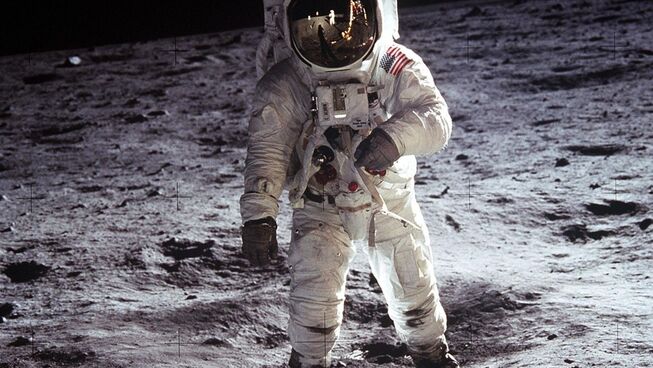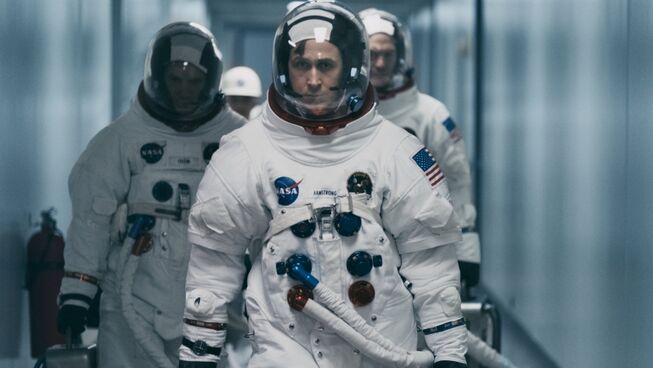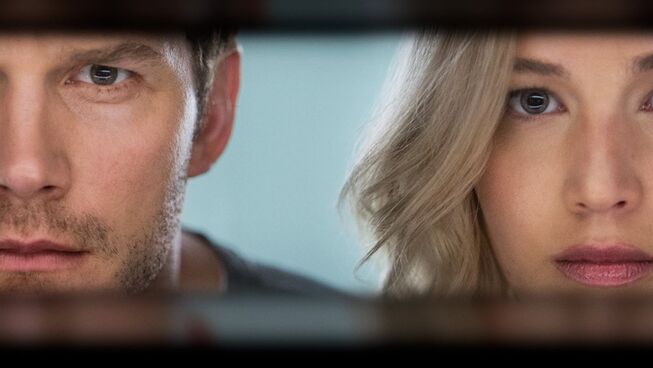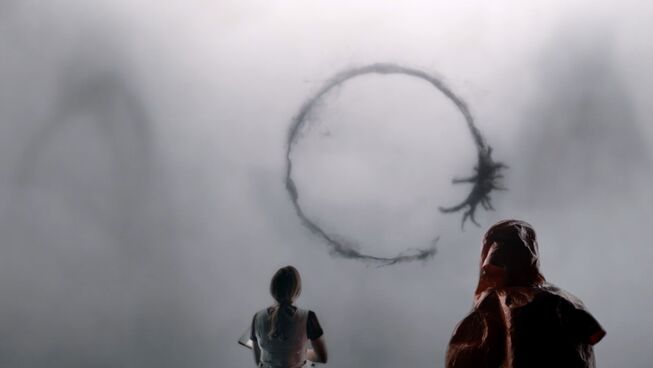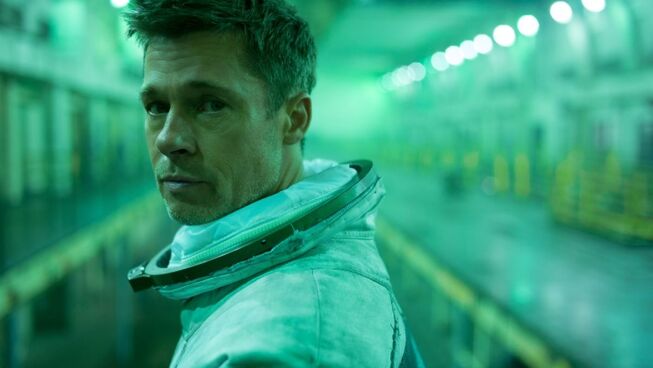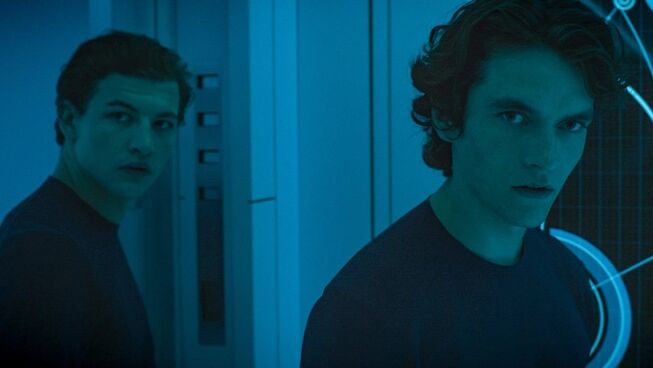
2 out of 5 stars
William Golding’s Lord of the Flies continues to be a mainstay for English studies and provides discussion on the human condition's realities. This Pulitzer prize-winning novel has been the inspiration for film, radio and television productions throughout the years depicting the world of Ralph and Piggy stranded on an island with adolescent cohorts. Golding’s book is not directly referenced in Voyagers. Still, there are whispers of his novel that permeate this psychological space drama. As we see how this social experiment would move from a deserted island to the confines of a space vessel.
In the not too distant future, the world's governments have given up hope for Earth's sustainability. This leads to exploring the cosmos for a planet that can sustain and provide a future for human life. Upon discovering this new planet that can support life, a program is put into place to raise 30 children to be trained and sent to to begin a new life for humanity. These test cases would not actually reside on the planet, because the journey would take 86 years. Instead, they would procreate during the trip while their children and grandchildren would become mankind’s hope.
Richard (Colin Farrell) has been the primary overseer for the children from birth until the time they are sent on their interstellar mission. He eventually volunteers to guide his students as they travel through these vast star systems, even though he will not survive to see the planet himself. As their leader, all goes well in the journey across the stars until the young travellers get to the early adult years. Christopher (Tye Sheridan) and Zac (Fionn Whitehead) are friends who discover that everything that Richard has been telling them has been a series of half-truths. As they begin to ask detailed questions, many of their suspicions are confirmed. They must decide if they will continue to follow their mentor or take over leading this young crew. The only thing that seems to divide them or cause unnecessary distraction during this time is the pair's affections for Sela (Lily-Rose Depp).
Besides the illusions to Lord of the Flies, writer/director Neil Burger (The Upside, Limitless) seems to have found some inspiration in the Robert Pattinson indie-film, High Life. Even though his manner of storytelling is relatively tame in comparison, his movie touches on many of the same issues that have plagued humanity's hearts since the beginning of time. The writer considers what would happen if left to our own devices without any rules or moral standards. Like many of the referenced predecessors in literature and film, Burger’s story shows we will turn to our primal violent and dangerous desires. While Pattison’s film was bleak and hopeless, Voyagers tries to offer a more humanistic approach of mankind that strives to be good with the right inspiration.
In the space vessel's claustrophobic existence, the cast does its best to convey the screenplay's underlying messaging. One that shows that evil and good reside in the human soul and a push for good to prevail. Unfortunately, there are so many logical and historical issues that undermine the point of Burger’s story. Suppose you can get past the unrealistic expectations of sustaining this crew for an 86 year journey by supplying them with sufficient clothing, food and health care. In that case, the biggest hurdle is dealing with human history. Mankind proves that if we are left to our own selfish ways, we rarely choose the moral path. Instead, we take up darker choices that satisfy our own desires.
The heart is deceitful above all things, and desperately sick; who can understand it? - Jeremiah 17:9
The film has some of the best young talents in cinemas and they do the best with what they have been given. A script that wants to engage with some of the more significant questions in life. Yet, it fails to provide any satisfactory answers. Even though the crew's actions are not too surprising when they are given their freedom. The solution offered to these situations proves to be a weak attempt at moralism without basing it upon anything. This leaves this to be a world where pretty people behave badly (future earth will only be pretty people) and then inexplicably choose to be good for the rest of their days.
Reel Dialogue: The desire for utopia
What this does show is that there is an underlying desire for a utopian existence. A place where there is no violence, no pain, no rape, and people treat one another with respect. Voyagers fails to offer an honest solution, but that does not mean that there is none. Within the words of the Bible we can know that this place exists and is labelled the Kingdom of God.
There will be no more death' or mourning or crying or pain, for the old order of things has passed away." - Revelation 21:4
This is a future place that is spoken of and offered to all who believe in God's Son, Jesus. There are no prerequisites, no cultural expectations, no gender limitations or barriers to overcome. Only a willingness to accept the words said by Christ that everyone who believes in him will have eternal life (John 3:15) as truth for your life. It does not take an 86 year journey across space and time to know how to discover this perfect world. The Kingdom of God can be had by all who are willing to believe.

